
More Helpful Content
Fulfillment logistics is more than just delivering orders. It is a complex process that requires careful attention to every detail for customer satisfaction.
Therefore, many e-commerce businesses opt to collaborate with third-party logistics providers offering fulfillment logistics services to guarantee a seamless and error-free process.
If you're a newcomer to the world of fulfillment logistics, having the right guidance is the key to success. So, what exactly is fulfillment logistics, and why is it so important to outsource to a third-party logistics provider?
Let's delve into these questions in this post!
Fulfillment logistics is the backbone of the supply chain, responsible for managing inventory in e-commerce warehouses, shipping customer orders, ensuring on-time deliveries, and handling the return process.
>> Learn more:
Dealing with fulfillment logistics can be intricate and demanding for e-commerce businesses trying to manage it all alone. That's why many prefer to bring in third-party logistics providers (3PLs) to handle expertly and complete order fulfillment tasks promptly.
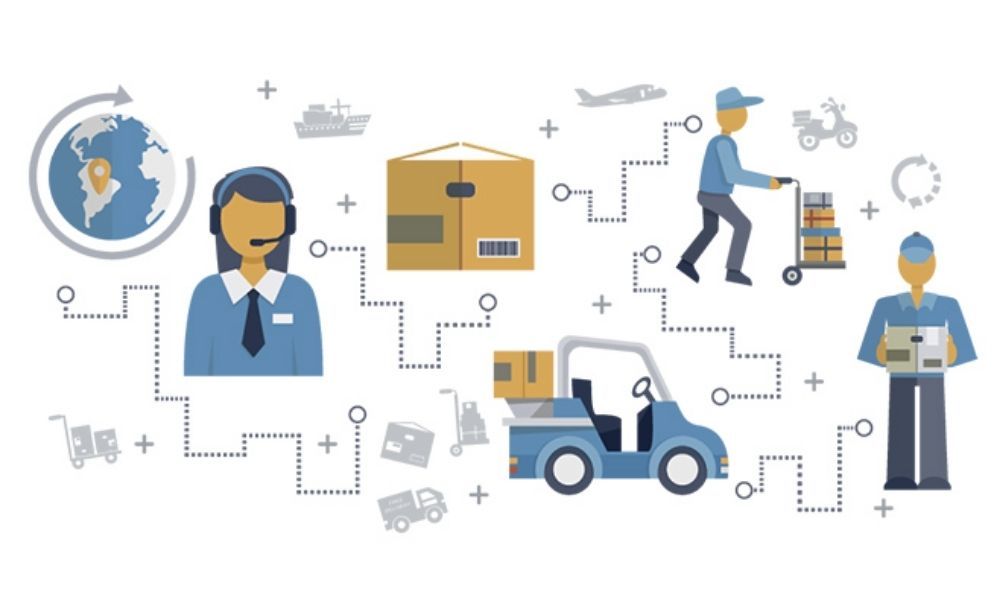
Are you confused between two terms "fulfillment logistics" and "order fulfillment"? Fulfillment logistics and order fulfillment often overlap in various ways as they focus on delivering customer orders.
Let's dive into the workings of fulfillment logistics! While it extends beyond the scope of order fulfillment, it involves four key steps, as outlined below.
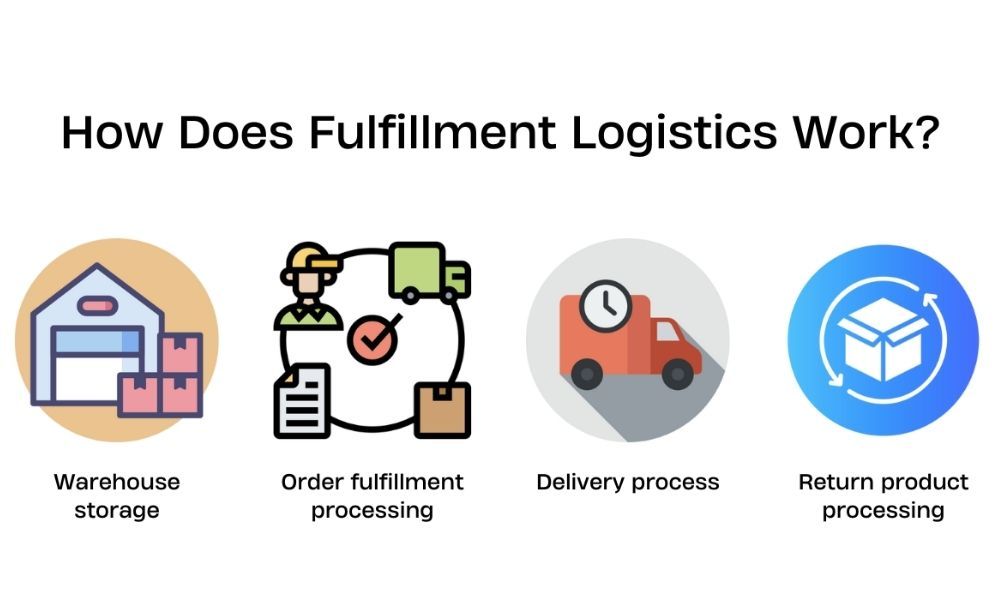
In fulfillment logistics, warehouse storage is all about smartly organizing and storing inventory in a warehouse. It involves categorizing products, using technology like Warehouse Management Systems (WMS) for tracking, and ensuring the security and proper use of warehouse space.
Every e-commerce company has unique requirements for storage and personnel to access the right items, and consistently deliver products to customers in a timely and cost-effective way.
As a company grows, it may consider options like investing in its warehouse or partnering with a third-party logistics provider. Opting for a third-party provider allows for outsourcing logistics and fulfillment services without the need to invest in infrastructure, staff, or supplies.
Nailing the storage game for your company is a must for optimizing your order fulfillment strategy and maintaining an efficient supply chain.
Order fulfillment comes in three primary types, each with its own approach.
Self-fulfillment
The company does it all in-house, from handling inventory and packing orders to shipping to customers and managing returns.
The self-fulfillment model is like the hands-on, DIY approach, well-suited for small companies or individuals running their businesses from home, overseeing all aspects of the business independently.
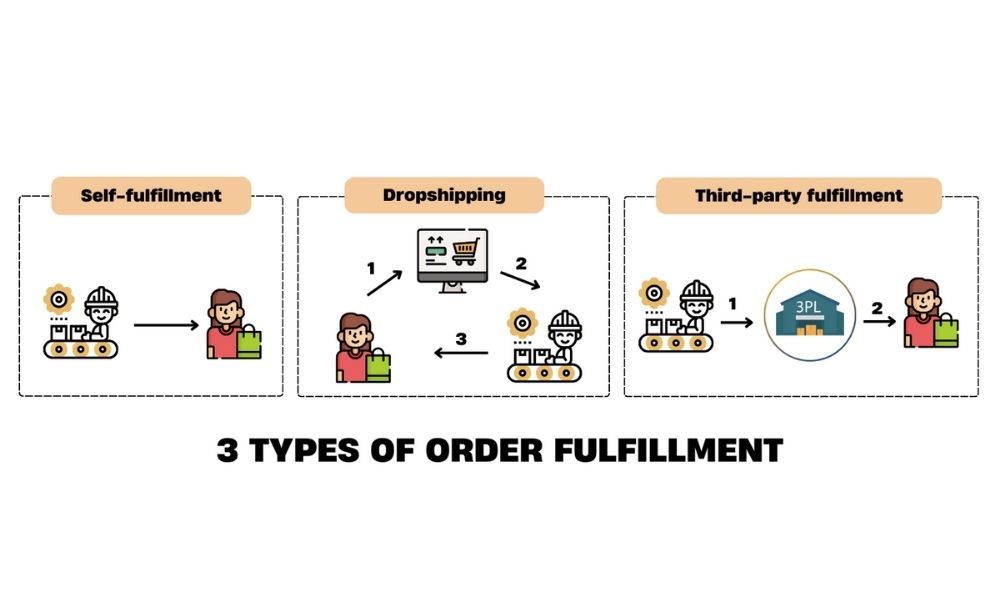
Dropshipping
Dropshipping is the hands-off route. The company doesn't manufacture or store the products it sells. Instead, it partners with a manufacturer, outsourcing production and shipping based on the company's specifications.
Dropshipping is ideal for businesses aiming to focus on sales and marketing without dealing with the complexities of production and inventory management.
Third-party fulfillment
Under this model, the company hooks up with a fulfillment service provider to take care of inventory, packing, and shipping.
Third-party fulfillment is a smart move for businesses wanting to streamline operations, access shipping discounts, and leverage additional services provided by specialized fulfillment companies.
The delivery process in fulfillment logistics is getting products from the fulfillment center or warehouse to the end customer's specified location.
Efficient management of the delivery process is crucial for meeting customer expectations and maintaining a positive reputation in the market. Consider the following strategies to enhance your delivery processes:
Return product processing in fulfillment logistics involves handling product returns from customers. Making sure returned products are handled efficiently is a must to build trust with customers and ensures a hassle-free experience after they've made a purchase.
If you're handling things in-house, customers send back products to your warehouse. Your team then checks if the product qualifies for a refund. On the other hand, if you hire an outside logistics team to manage everything, including returns, they take care of the whole process, leaving your team to do other important tasks.
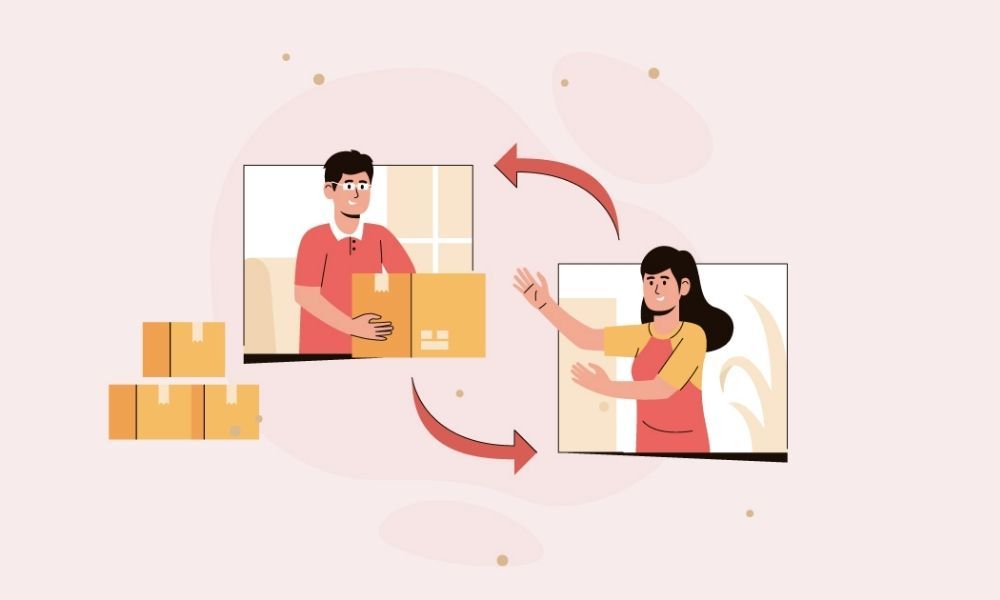
Outsourcing returns is often better because specialized experts can handle it more efficiently, it's flexible for changing volumes, and it usually saves money compared to managing returns in-house, especially for small businesses whose top priority is growth.
So, how do outsourcing fulfillment logistics outshine? Let's move to the next part!
Getting orders to customers quickly is a big deal – in fact, 41% of global shoppers want their stuff within 24 hours, according to Statista. To make this happen, partnering with a solid third-party logistics (3PL) service is key.
When you partner with a retail order fulfillment provider with multiple warehouses, you can strategically distribute your inventory. That way, you're shipping from places that are closer to your customers.
This shortens transit times, ensures faster order deliveries, and saves you money on shipping. A smart designed fulfillment logistics strategy is essential for meeting customer demands for economical and speedy 2-day shipping while optimizing operational costs.
Trying to avoid errors in self-fulfillment when handling orders yourself is a real challenge, such as accidentally putting the wrong item in a box or sticking the wrong label on.
Mistakes happen, even to the best of us. Keep in mind that the cost of errors is much higher than the price of perfection. Therefore, opting for a third-party logistics fulfillment center offers a solution.
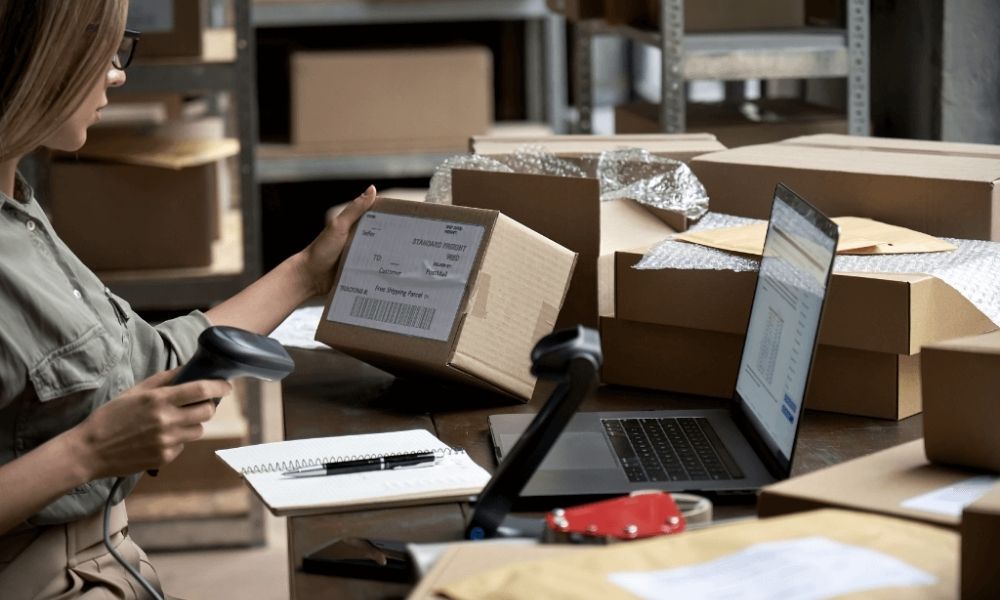
These centers are purposefully designed and optimized for maximum efficiency and effectiveness. From their equipment and labor flow to the utilization of space and technology, everything is geared towards enhancing accuracy. So, when you go with a 3PL, you're likely to see way fewer mistakes compared to doing it all on your own.
Streamlining administrative tasks becomes crucial as an e-commerce business expands. While fulfillment logistics is a key aspect of operations, managing it internally can consume time and attention better spent on activities like boosting sales, fostering a customer community, and enhancing product quality.
Business owners recognize the value of outsourcing to fulfillment logistics experts, allowing them to concentrate exclusively on tasks where their unique expertise is essential.
Since 3PLs partner with major shipping carriers and serve numerous e-commerce businesses, they can offer the most competitive rates negotiated through their large volume.
Handling bulk shipping secures shipping discounts and significantly contributes to long-term cost savings in various aspects, including packing materials and storage space.
>> Explore Bulk shipping and fulfillment with EFFEX
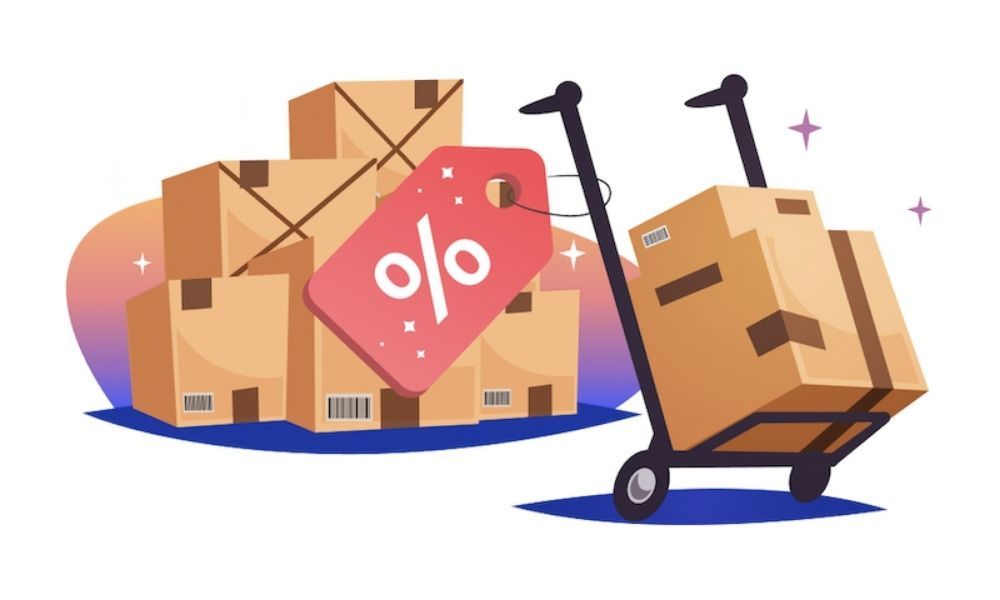
Even though outsourcing fulfillment logistics comes with some great perks for businesses, there are still a few lingering concerns that haven't been entirely addressed.
Here are four common challenges in fulfillment logistics and figure out how to tackle them head-on.
Let’s imagine this. If your inventory isn't well-managed, your warehouse team ends up spending precious time hunting for products, leading to delays in shipping and delivery to your customers.
The fix? Go for real-time warehouse management software (WMS). This solution ensures accurate tracking of inventory, helping streamline operations and get products into the hands of customers more swiftly.
Moreover, with a reliable 3PL, you should be able to keep an eye on your stock levels in real-time at each fulfillment center. You can even be proactive by setting reorder points to avoid running out of stock and provide valuable insights into your products.
Forecasting customer demand accurately is an ongoing challenge as customer demands are dynamic and can change swiftly with the seasons or economic ups and downs. Misjudging demand can lead to either excess inventory or customer dissatisfaction.
That’s why 55.73% of retail supply chain executives in 2021 are willing to invest in productive planning and demand forecasting (According to Statista).
Indeed, poor customer demand prediction can have significant consequences for businesses. Overestimating demand may lead to outdated inventory eating up shelf space that could be allocated to more profitable products.
Conversely, underestimating demand can result in extended wait times because of backorders, prompting customers to seek alternative retailers for their purchases.
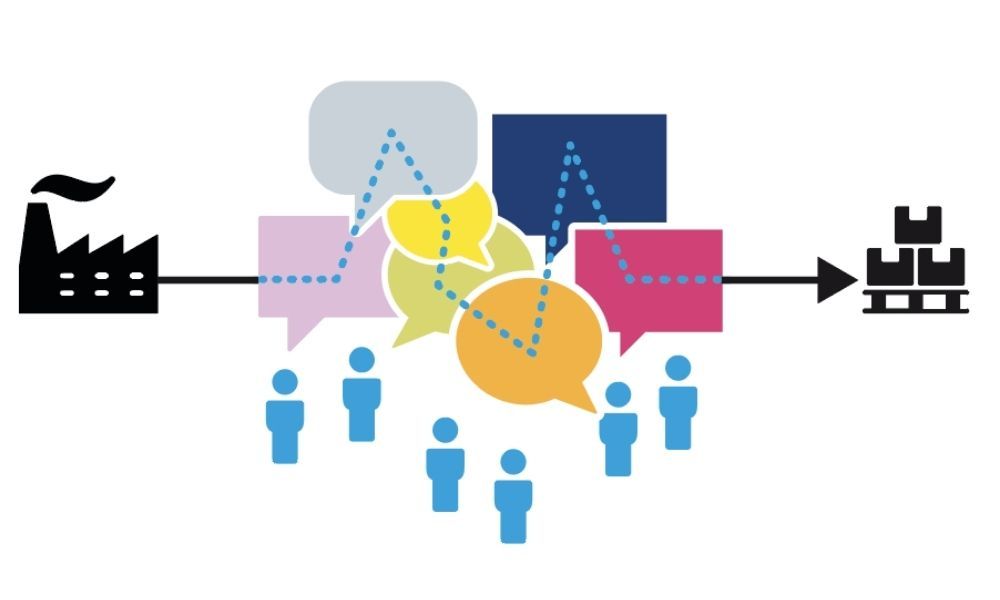
Addressing these challenges requires a combination of data analytics, market research, and agility in adapting to changing circumstances. Utilizing advanced technologies and collaborative communication across the supply chain can enhance the accuracy of predicting customer demand in fulfillment logistics.
Even if you've got the slickest plans and processes in place, unexpected spikes in demand can throw a wrench into things, leaving you short on inventory. This is where having a solid line of communication with your manufacturers becomes absolutely crucial.
Any gaps or delays in communication can lead to misunderstandings, impacting the timely execution of supply chain plans.
Besides, when it comes to supply chain execution, it is basically the journey your goods take from being made to reaching the customer's doorstep. It's a series of moves that need to be flawlessly executed.
However, external factors such as natural disasters, geopolitical events, or global crises can disrupt the entire supply chain. Adapting to unforeseen circumstances and ensuring continuity becomes challenging in such situations.
Overcoming these challenges requires fostering strong relationships with manufacturers, implementing robust communication channels, leveraging advanced technologies for real-time tracking, and maintaining flexibility to adapt to unforeseen disruptions in the supply chain.
Importantly, collaboration and transparency are key to successfully coordinating with manufacturers and executing supply chain plans in fulfillment logistics.
According to 4over's survey, 96% of respondents say they will track their orders after purchase, and 43% check their delivery status daily. Hence, ensuring effective delivery tracking in fulfillment logistics is key to delighting customers and fostering repeat business.
However, managing relationships with multiple carriers for various shipping needs can be complex. Inaccurate or outdated data can lead to customer frustration, increased inquiries, and a decline in overall satisfaction.
Besides, meeting rising customer expectations for delivery tracking while implementing advanced tracking systems is a constant hustle, especially for smaller ones with limited resources.
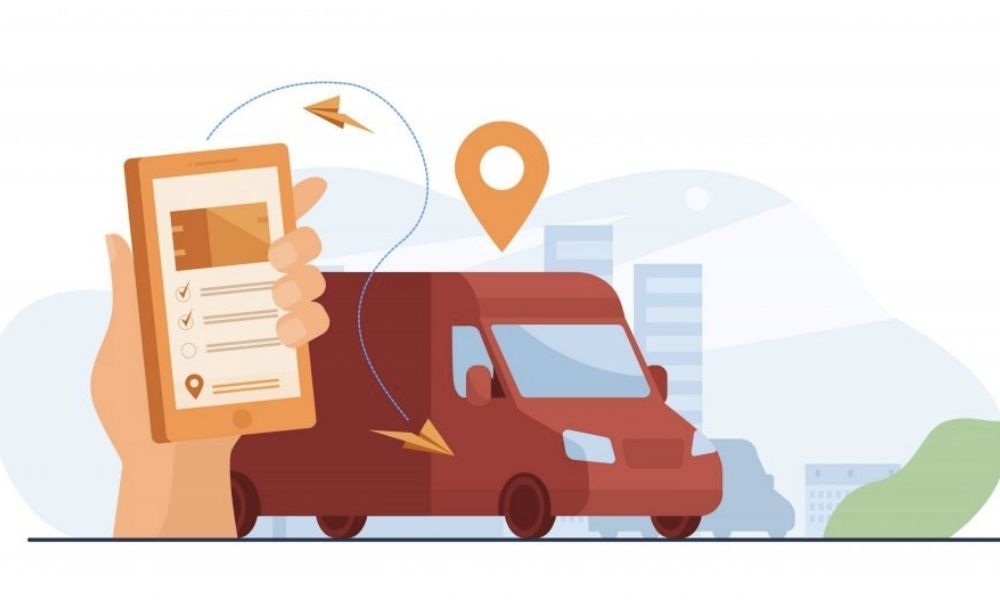
Overcoming these challenges involves investing in advanced tracking technologies, collaborating closely with carriers, optimizing last-mile delivery processes, and maintaining a commitment to transparent communication with customers.
Deciding when it's the "right time" to outsource fulfillment logistics involves considering several key indicators:
As your business grows, managing a rapidly increasing order volume can become overwhelming, especially in peak seasons. If your business experiences a surge in orders and cannot handle them efficiently, it may be the right time to explore outsourcing.
Partnering with a third-party logistics provider offers the flexibility to scale operations in response to fluctuating order volumes, ensuring a seamless order processing experience. This relieves the burden of fulfillment logistics for busy e-commerce businesses and preserves their operational efficiency.
When your current storage facilities reach their capacity due to an expanding inventory, it shows that exploring outsourcing is a smart move. Partnering with a 3PL allows you to leverage their storage capabilities, ensuring secure and scalable storage for your products.
Before opting for outsourcing, businesses often store products in makeshift spaces such as garages, basements, offices, or even renting storage units. Yet, these makeshift solutions are usually just quick fixes and may not cut it for long-term growth.
If the intricacies of inventory management are consuming a significant portion of your time and resources, outsourcing becomes a strategic solution.
3PL providers often bring advanced inventory management systems to the table, streamlining processes and freeing up your focus for core business activities.
Timely order fulfillment is paramount for ensuring customer satisfaction. If your internal logistics struggle to meet the demand for swift deliveries or experience a high cart abandonment rate during checkout, engaging with a 3PL provides access to a well-established network.
This collaboration expedites the fulfillment process, guaranteeing on-time deliveries and enhancing the overall customer experience.
EFEX specializes in optimizing e-commerce order fulfillment, offering tailored solutions to enhance efficiency and customer satisfaction.
Let's discover our highlight feature:
Lower costs. Cut operational expenses by up to 70%, covering everything from employee costs to fire prevention. Our pay-as-you-go model ensures you pay only for what you use.
High accuracy rate. We've got your back. We can handle the whole process - all meeting SLA commitments. Achieve an accuracy rate of up to 99.9% in order handling.
Faster delivery. Speed up delivery times by 50%, ensuring swift order shipments, happier customers, and a boost in sales.
Effective real-time tracking. Our advanced technology ensures seamless multichannel order management, tracking, and error-free processing. It will help you reduce the rate of lost packages and frustrated customers.
Top-level customer support. Our skilled team is available 24/7 to help you discover the optimal and customized approach that perfectly fits your business.
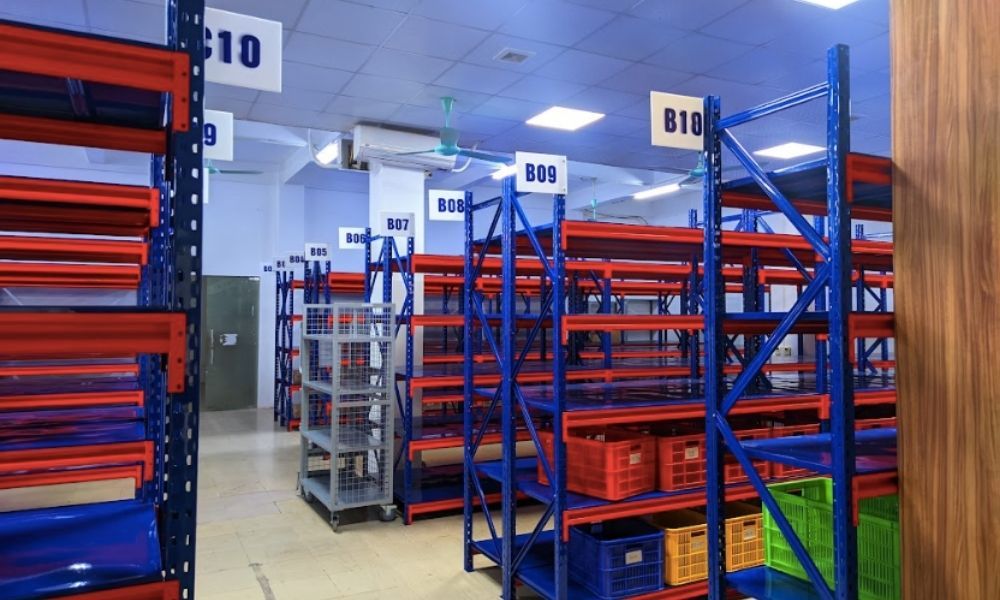
When you partner with EFEX, you're not just getting a logistics provider; you're getting a team that understands the intricacies of e-commerce.
EFEX becomes an extension of your brand, working tirelessly behind the scenes to make sure your customers keep coming back for more.
>> Explore the hassle-free e-commerce fulfillment with EFFEX
You see, effective fulfillment logistics is a game-changer for your business growth. Whether self-fulfilling, dropshipping, or partnering with a third-party provider like EFEX, understanding your unique needs is key.
Always balance challenges and benefits, choose the right solutions available, adapt to changing demands, and stay ahead in the competitive e-commerce world.
If you're seeking assistance with these tasks, allowing you to concentrate on crucial aspects of your business, let EFEX give you a hand, say goodbye to hassles, and skyrocket your efficiency.


